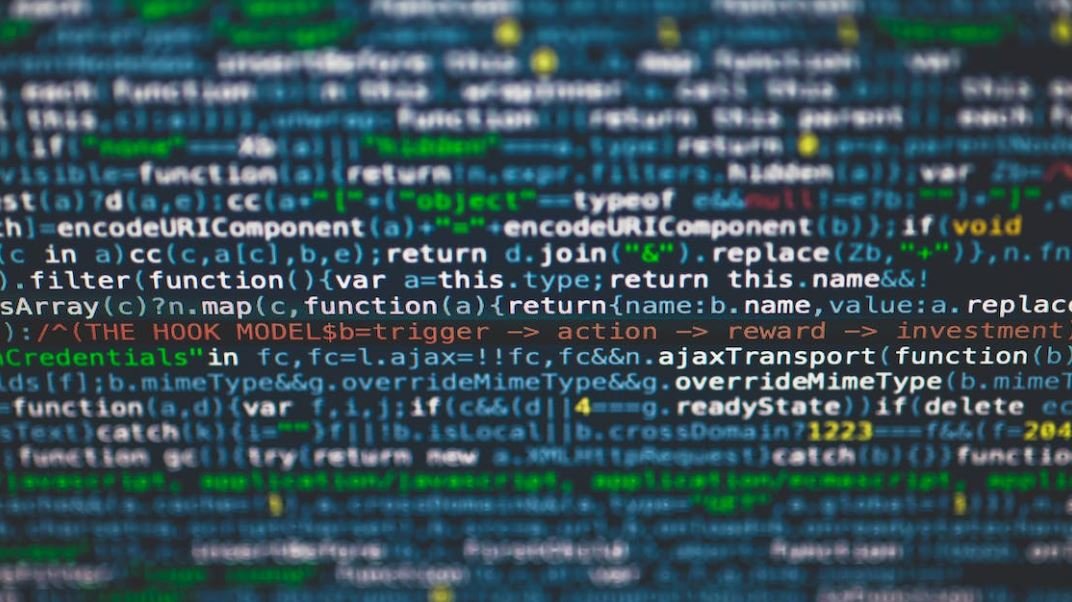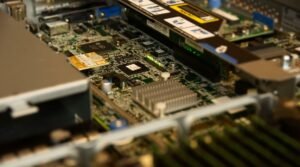AI Development Issues
Artificial intelligence (AI) has grown rapidly in recent years, revolutionizing various industries and offering new opportunities for innovation. However, AI development is not without its challenges. From ethical concerns to technical limitations, AI faces several key issues that must be addressed. In this article, we will explore some of the major hurdles that AI development currently faces and examine potential solutions to these problems.
Key Takeaways:
- AI development faces several major challenges that need to be overcome.
- Ethical concerns surrounding AI’s impact on privacy and job displacement are important issues.
- Technical limitations, such as interpretability and data bias, hinder AI’s progress.
- Addressing these challenges requires collaboration across various stakeholders.
- Regulations and policies need to be established to ensure responsible AI development.
- The future of AI development relies on navigating and resolving these issues.
Ethical Concerns
One of the primary concerns surrounding AI development is the ethical implications of its applications. AI systems can be designed to collect and process vast amounts of personal data, raising concerns about privacy and data security. *Ensuring privacy protection measures while leveraging the potential of AI* is crucial for maintaining public trust. Additionally, there are concerns about AI’s impact on jobs, as automation may lead to displacement in certain industries. *Balancing automation with safeguards for job security* is an ongoing challenge for AI developers.
Technical Limitations
Developing AI systems that are transparent and explainable is a pressing issue. *Interpretability is key to gaining user trust and understanding the decision-making process of AI algorithms.* Ensuring that AI models are not “black boxes” is crucial for allowing humans to comprehend and challenge their outcomes. Another limitation is data bias, as AI systems learn from historical data that may carry societal biases. *Addressing bias in data collection and developing unbiased algorithms* is essential for creating fair and accountable AI systems.
Collaboration and Regulation
Overcoming the challenges faced by AI development requires collaboration across various stakeholders. *Bringing together AI developers, policymakers, ethicists, and end-users* can help facilitate conversations and establish guidelines for responsible AI development. Governments and regulatory bodies also play a crucial role in developing and implementing policies that ensure the responsible use of AI. *Establishing clear regulations and guidelines* can help mitigate risks and ensure ethical AI practices.
Table 1: AI Development Challenges
| Challenge | Description |
|---|---|
| Ethical concerns | Implications on privacy and job displacement |
| Technical limitations | Interpretability, data bias, and transparency |
| Collaboration and regulation | Stakeholder involvement and responsible policies |
Solutions and the Future of AI Development
Addressing these challenges requires a multi-faceted approach. AI developers and researchers should strive to enhance transparency and interpretability in AI systems. Efforts to reduce data bias and develop unbiased models are equally important. *Raising awareness and fostering public dialogue about AI’s potential risks and benefits* can lead to more informed decisions and responsible implementation. As technology continues to evolve, *ensuring ongoing collaboration and adapting regulations* will be vital to shape the future of AI development.
Table 2: Potential Solutions
| Solution | Approach |
|---|---|
| Enhancing transparency | Developing interpretable AI models |
| Reducing data bias | Improving data collection methods |
| Public dialogue and awareness | Engaging in informed discussions and education |
In conclusion, AI development faces numerous challenges that need to be addressed for the technology to reach its full potential. Ethical concerns, technical limitations, and the need for collaboration and regulation are critical issues that AI developers and policymakers must tackle. By finding solutions to these challenges and fostering responsible AI practices, we can shape a future where AI benefits society while protecting privacy, jobs, and fairness.
Table 3: Challenges and Solutions
| Challenge | Solution |
|---|---|
| Ethical concerns | Public dialogue and responsible policies |
| Technical limitations | Transparency, interpretability, and reducing bias |
| Collaboration and regulation | Stakeholder collaboration and adaptive regulations |

Common Misconceptions
Misconception 1: AI Development Will Replace Humans
One common misconception about AI development is that it will completely replace humans in various industries, leading to widespread unemployment. However, this is not entirely true.
- AI technology aims to augment human capabilities rather than eliminate jobs.
- AI can automate repetitive and mundane tasks, allowing humans to focus on more complex and creative work.
- The demand for skills in AI development is continuously growing, creating new job opportunities for individuals.
Misconception 2: AI Is Infallible and Always Accurate
Another misconception is that AI systems are infallible and always make accurate decisions. This assumption underestimates the challenges and limitations of AI development.
- AI systems can be biased, reflecting the biases present in the data on which they were trained.
- AI algorithms can make mistakes and have limitations in understanding context, sarcasm, or emotions.
- Continuous monitoring and fine-tuning are necessary to ensure the accuracy and fairness of AI systems.
Misconception 3: AI Development Is a Singular Field
Many people think that AI development is a single, homogenous field when, in reality, it encompasses several subfields and is highly interdisciplinary.
- AI development involves machine learning, natural language processing, computer vision, robotics, and more.
- Collaboration between experts in different fields such as computer science, mathematics, and psychology is crucial for AI development.
- Ethics and societal implications also play a significant role in AI development.
Misconception 4: AI Development Progresses Rapidly and Is Already at Human-level Intelligence
AI development is often portrayed as rapidly advancing and already surpassing human intelligence, but this representation is not entirely accurate.
- AI systems excel in specific tasks but lack a comprehensive understanding of the world as humans possess.
- While AI development has made significant strides in recent years, achieving true human-level general intelligence remains a challenge.
- AI algorithms require massive amounts of data and computing power, limiting their scalability and real-world applications.
Misconception 5: AI Development Is Harmful and Will Lead to Dystopian Futures
There is a common misconception that AI development is inherently harmful and will inevitably lead to dystopian futures depicted in science fiction movies.
- AI development can be used for both positive and negative purposes, depending on how it is implemented and regulated.
- Responsible AI development focuses on transparency, accountability, and robustness to mitigate potential risks.
- Proper governance and regulation can help ensure that AI is used ethically and for the benefit of society.

Introduction:
The rapid development of artificial intelligence (AI) has brought about a range of complex issues that encompass ethical, societal, and technical aspects. This article delves into ten different aspects of AI development, highlighting key points, data, and other elements that shed light on the challenges faced in this field.
1. Ethical Dilemmas in AI Deployment
The increasing adoption of AI in various domains has raised ethical concerns. High-profile instances of bias, privacy breaches, and AI systems being used for surveillance have brought forth questions related to transparency, accountability, and fairness.
2. Gender Bias in Facial Recognition Systems
Research has shown that facial recognition systems exhibit significant gender bias, where they inaccurately identify individuals from certain racial and gender groups. This bias underscores the need for diversity and inclusivity in AI development.
3. Bias in AI Decision-Making
AI algorithms are not immune to bias, and cases of discriminatory decision-making have been reported. Such instances can have far-reaching consequences in areas like hiring, criminal justice, and loan approval. Addressing bias is crucial to ensure fair and equitable outcomes.
4. Ethical Constraints in AI Warfare
The development of autonomous weapons powered by AI has raised concerns about autonomous decision-making and ethical constraints. Proper regulation, adherence to international laws, and defining clear boundaries are imperative to mitigate the risks associated with AI warfare.
5. Job Displacement Due to Automation
AI’s ability to automate tasks and job functions has led to concerns about widespread job displacement. Reports indicate that certain occupations are at a higher risk of automation, requiring governments and organizations to plan for retraining and reskilling initiatives.
6. Algorithmic Transparency and Explainability
The lack of transparency and explainability in AI algorithms hampers their broader acceptance and trustworthiness. Making AI systems more interpretable can mitigate concerns related to biased outcomes and enable better understanding of AI decisions.
7. Data Privacy and Security Challenges
AI systems heavily rely on vast amounts of data, raising concerns about privacy and data security. Striking the right balance between data accessibility for AI development and protecting individuals’ rights and freedoms remains a critical challenge.
8. Bias Amplification through Social Media Algorithms
Algorithms employed by social media platforms can contribute to echo chambers and the spread of misinformation. Recognizing and addressing the biases embedded within these recommendation systems is pivotal to fostering a healthy and informed digital ecosystem.
9. Adversarial Attacks on AI Systems
AI algorithms can be susceptible to exploitation through adversarial attacks, where intentionally manipulated data can deceive systems. Developing robust defense mechanisms against such attacks is crucial for ensuring the reliability and integrity of AI systems.
10. Ethical Responsibility of AI Developers
AI developers carry the ethical responsibility of ensuring their creations adhere to ethical standards and prioritize human well-being. Establishing a comprehensive ethical framework within AI development organizations is a critical step in upholding accountability.
Conclusion:
The development of AI brings forth a myriad of challenges that necessitate careful consideration and proactive action. From addressing bias and ethical dilemmas to ensuring transparency and safeguarding privacy, the complexities of AI development extend beyond technical frontiers. By acknowledging these issues and fostering collaboration between stakeholders, we can collectively strive towards responsibly harnessing the potential of AI for the benefit of society.
Frequently Asked Questions
What is the importance of AI development?
AI development is important as it can help automate tasks, make data-driven decisions, improve efficiency, and enhance user experiences in various industries.
How does AI development impact job roles?
AI development can lead to job roles being replaced or augmented by automated systems. However, it also creates new opportunities in the field of AI research, development, and maintenance.
What are the common challenges faced in AI development?
Some common challenges in AI development include data quality and availability, biases in AI algorithms, ethical concerns, interpretability of AI systems, and adapting to rapidly evolving technologies.
What measures are taken to address biases in AI algorithms?
To address biases in AI algorithms, developers can perform rigorous testing, ensure diverse and representative training data, and implement fairness-aware algorithms that mitigate bias in decisions made by AI systems.
How can AI development be made more ethically responsible?
Ethical AI development involves considering the potential social and societal impacts of AI systems, respecting privacy and security, obtaining consent for data usage, and implementing transparent and accountable decision-making processes.
What is the role of AI regulation in AI development?
AI regulation aims to establish guidelines and standards for the ethical and responsible use of AI technologies. It helps ensure that AI systems are developed, deployed, and used in a manner that benefits human society and mitigates potential harms.
How can AI development be made accessible to all?
AI development can be made more accessible by promoting open-source frameworks, providing educational resources and training programs, and fostering collaborations among different stakeholders, including researchers, developers, and policymakers.
What are the potential risks associated with AI development?
Potential risks of AI development include job displacement, privacy breaches, algorithmic biases, overreliance on AI systems, security vulnerabilities, and the potential misuse of AI technologies for malicious purposes.
What measures are in place to ensure the security of AI systems?
Security measures for AI systems include implementing robust authentication and access control mechanisms, performing regular security audits and vulnerability assessments, and monitoring AI systems for potential threats or breaches.
How can developers stay updated with AI development trends?
Developers can stay updated with AI development trends by actively participating in AI conferences and workshops, joining online AI communities and forums, reading books and research papers, and experimenting with new AI frameworks and technologies.




